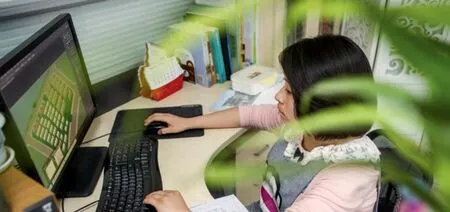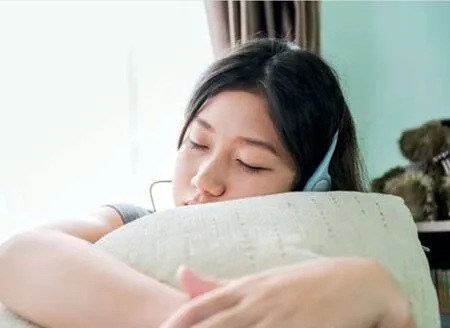EMOTIONAL LABOR
PSYCHOLOGICAL MANIPULATION REMAINS UNDERREPORTED IN CHINESE WORKPLACES

“I asked myself, ‘Am I an employer who has engaged in workplace PUA?’ I am, and I apologize to everyone who has worked with me,” wrote entertainment CEO Xu Mingchao on Weibo, “except Yamy.”
In July, Xu’s company, JC Universe Entertainment, came under fire after rapper Yamy shared a three-minute audio clip of Xu going on a tirade against her in a meeting where she was not present. In a lengthy Weibo post,Yamy detailed two years of emotional abuse by her boss, from criticism about her appearance to threats to put her on an industry-wide blacklist.
The viral post, as well as Xu’s lack of remorse, has incited public concern over so-called “workplace PUA.”Employees have taken to Weibo to share bleak stories about employers making them cry, assigning unpaid overtime, making personal remarks, and interfering in their private lives.
PUA, short for “pickup artist,”originally described a form of psychological abuse in seduction or intimate relationships, where the abuser tries to control the victim by toying with their emotions and breaking down their confidence.
In the workplace, similar behaviors can take place in relationships of power disparity, such as between bosses and their subordinates, according to Xiong Xinfa, a career consultant with 500,000 followers on Weibo. Victims are manipulated to be unable to assert themselves, and ultimately obey the abuser. “I used to believe that if there was some problem, it must be my fault.It was me who didn’t perform well enough,” Yamy wrote.
Prior to Yamy coming forward,psychological problems in the workplace were rarely discussed in public, though Xiong believes that some commentators wrongly conflate a wide range of workplace conflicts with PUA. In a June survey by recruitment company Zhilian, over 63 percent of 8,062 white-collar workers said they experienced “workplace PUA,” mostly in the service sector.
According to Zhilian, common manipulation tactics in the workplace include verbal denial of abuse,illusory promises of rewards, and the encouragement of admiration for the employer. “I have worked overtime for three months without any extra pay, since my boss told me I was about to get promotion as a senior engineer, but I haven’t gotten anything yet,” Chen Ying, a test engineer at a Shanghai financial company, tells TWOC. “I want to leave, but I’m afraid of missing my chance.”
Though workplace PUA isn’t unique to China, Xiong believes a Confucian emphasis on group “l(fā)oyalty” can foster such behavior. “Employee loyalty isn’t a bad thing in itself,” he tells TWOC. “Many companies will have employees sing songs or chant slogans to rally their spirits…but employees must be allowed to refuse to participate in things that make them uncomfortable or that violate their basic rights, without retaliation.”
For employees who face “workplace PUA,” Xiong recommends leaving the workplace as soon as possible,contacting lawyers or judicial organs for legal assistance, and understanding that their experience was not normal. Under China’s Labor Law, employees can seek damages from employers for shaming and physical punishment.
In the long run, however, laws still have yet to outline clear safeguards for workers’ mental health.“Protecting employees’ rights is a gradual process. Only when you’ve safeguarded the right to have a job,get paid, get holidays, have a safe working environment…can there be attention on mental health,” says Xiong.
“When most people are still worried about escaping poverty and putting food on the table, they don’t prioritize mental health.” – YANG TINGTING (楊婷婷)
SAD SONGS
In response to demoralizing comments under its songs, NetEase Cloud Music, a music streaming service with more than 800 million users, announced it will recruit professional therapists and over 10,000 volunteers to provide roundthe-clock emotional support to potentially depressed listeners.Around 95 million people in China suffer from depression, and 90 percent of them do not have access to treatment, according to the state-run People’s Daily Online news platform. In addition to online psychological consultation,NetEase is introducing an option for subscribers to send each other “virtual hugs,” and asking moderators to write lighthearted comments to create a friendly atmosphere.
Some of the sad stories are clearly fabricated, with many identical comments posted by different users.This has led netizens to dub the platform “NetEmo.” Nevertheless,writes the People’s Daily Online on Weibo, “Depressive views…remind us that real expressions online deserve attention and kindness.Fake content must be regulated,[while we] promote the mental health of netizens.” – Y.T.


Always wanted to own an island? That dream may become surprising attainable in Liaoning province, which is selling rights to develop uninhabited islands starting at 3,700 RMB (540 USD) per hectare per year.The northeastern province is home to 633 islands, the largest number in China; 589 of these isles are uninhabited. The scheme aims to involve the private sector in protecting the ecology of the islands and the sea,an anonymous government official told the state-run newspaper Global Times.
According to a government notice from late July, new developers may put these islands toward nine “l(fā)evels” of uses, including tourism,transportation, national defense, fishing, and agriculture. Would-be Robinson Crusoes are warned, though, that there’s a lengthy application process requiring detailed plans for utilization and assessment of ecological impact. Similar plans to develop islands in several provinces in 2003 and 2005 were scrapped due to unregulated construction. – HATTY LIU

“I cannot recognize people, not even my own sons,” Zhang Yuhuan told the Paper on August 4, the day he was acquitted of murder after 9,778 days in prison.
In 1995, 26-year-old Zhang was convicted for killing two children in his village in Jiangxi province, though he said he had been tortured to confess,and gave two contradictory testimonies. Zhang appealed until the Jiangxi High People’s Court agreed to review his case in 2018.
According to research by the Renmin University of China, there were 847 wrongful convictions in China from 2002 to 2018, with the subjects confined for 974 days on average. The problem derives from the lack of independence between the police, prosecutors, and the court.
Zhang has applied for over 22.3 million RMB in compensation and a public apology from the court. However, he told Haibao News, “No millions can make up for the 27 years I’ve lost.” – TAN YUNFEI (譚云飛)

